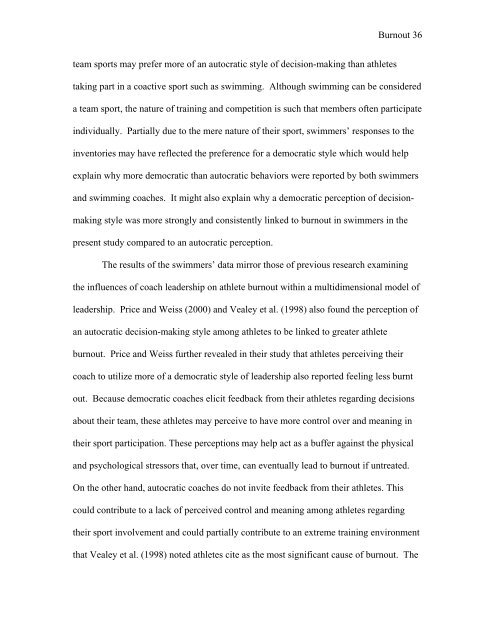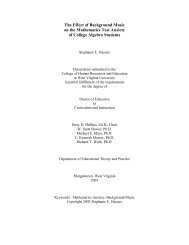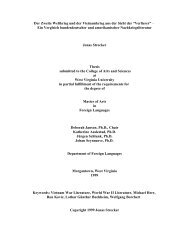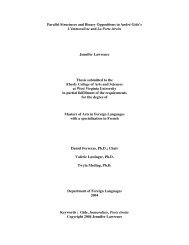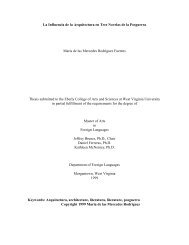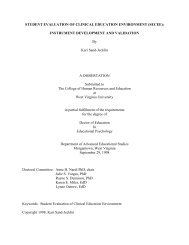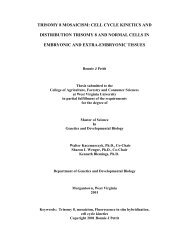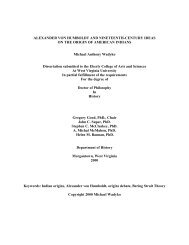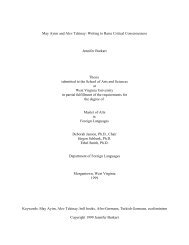Coach and Athlete Burnout - West Virginia University
Coach and Athlete Burnout - West Virginia University
Coach and Athlete Burnout - West Virginia University
You also want an ePaper? Increase the reach of your titles
YUMPU automatically turns print PDFs into web optimized ePapers that Google loves.
team sports may prefer more of an autocratic style of decision-making than athletes<br />
<strong>Burnout</strong> 36<br />
taking part in a coactive sport such as swimming. Although swimming can be considered<br />
a team sport, the nature of training <strong>and</strong> competition is such that members often participate<br />
individually. Partially due to the mere nature of their sport, swimmers’ responses to the<br />
inventories may have reflected the preference for a democratic style which would help<br />
explain why more democratic than autocratic behaviors were reported by both swimmers<br />
<strong>and</strong> swimming coaches. It might also explain why a democratic perception of decision-<br />
making style was more strongly <strong>and</strong> consistently linked to burnout in swimmers in the<br />
present study compared to an autocratic perception.<br />
The results of the swimmers’ data mirror those of previous research examining<br />
the influences of coach leadership on athlete burnout within a multidimensional model of<br />
leadership. Price <strong>and</strong> Weiss (2000) <strong>and</strong> Vealey et al. (1998) also found the perception of<br />
an autocratic decision-making style among athletes to be linked to greater athlete<br />
burnout. Price <strong>and</strong> Weiss further revealed in their study that athletes perceiving their<br />
coach to utilize more of a democratic style of leadership also reported feeling less burnt<br />
out. Because democratic coaches elicit feedback from their athletes regarding decisions<br />
about their team, these athletes may perceive to have more control over <strong>and</strong> meaning in<br />
their sport participation. These perceptions may help act as a buffer against the physical<br />
<strong>and</strong> psychological stressors that, over time, can eventually lead to burnout if untreated.<br />
On the other h<strong>and</strong>, autocratic coaches do not invite feedback from their athletes. This<br />
could contribute to a lack of perceived control <strong>and</strong> meaning among athletes regarding<br />
their sport involvement <strong>and</strong> could partially contribute to an extreme training environment<br />
that Vealey et al. (1998) noted athletes cite as the most significant cause of burnout. The


